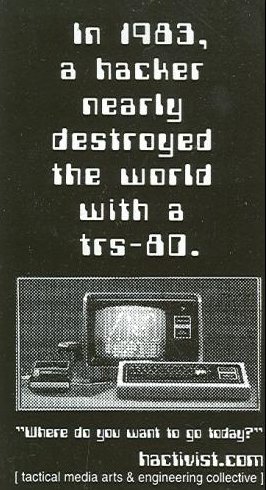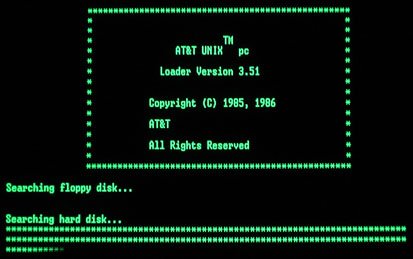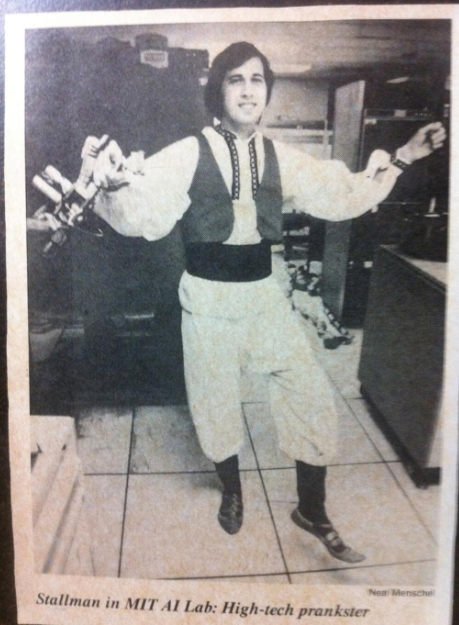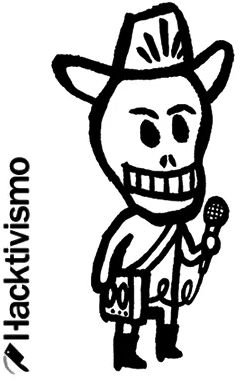
From a general perspective and following Pekka Himanen, hacker ethics encompasses a new morality based on the value of creativity, as well as on the combination of passion and freedom, but in particular terms and in its direct relationship with computer science and the Internet, ethics hacker acquires many more readings; from defining who is really a hacker and who is not, to the demand to socialize computers, to collective production of software

a) The Ferromodelism Club of MIT (mid 50' s).
Historically, the strong core of hacker ethics originated in the mid-1950s, when a group of Ferromodelism Club students at MIT, interested in information processing, developed a complex electrical system for railroad track management. Everyone who worked in this activity was called a hacker."[1]
In the late 1950s, the Ferromodelismo Club had its first Mainframe computer, the TX-0, which allowed its members to apply the technological motivation they felt in computer systems. In addition, influenced by the beginning of the libertarian and anti-authoritarian ideology that would impact the United States in the next decade, they drew up a declaration of principles on the uses and attitudes to be had before informatics. At that time, identifying with the Ferromodelling Club implied practicing the following sixth dialogue of ideas:"* Access to computers - and anything that can teach you something about how the world works - should be unlimited and total.Always surrender to the imperative of touch! (Hands-On Imperative).All information should be free. (Long before the cyberpunk picked up the phrase)* Lack of authority - Promotes decentralization.Hackers should be judged by their hacking, (i. e., by their technological contributions) and not by criteria such as grade levels, age, race or position.You can create art and beauty on your computer.* Computers can change your life for the better."
2]Time later, in the mid-1960s, the interpretation of the Ferromodelling Club of MIT triggered the first technological contributions of the hackers when the North American government initiated the development of the Arpanet, a project that although financed by the military sphere, required constant consultation and work of expert technologists from a large number of North American universities; who designed the computer strategies for

(b) The Unix philosophy (1969).
With the development of Unix, all previous operating system experiments began to develop from a single design standard. It was in the midst of this period of technological schism when the hackers of that time came up with a new interpretation of the programmer's work (Raymond 2001), which refers to the following:"There is a community, a shared culture, of expert programmers and network wizards... The members of this culture coined the term' hacker'. Hackers built the Internet. (...) So if you want to be a hacker repeat the following until you believe it:
The world is full of fascinating problems waiting to be solved: It's a lot of fun to be a hacker, but it's the kind of fun that takes a lot of effort. (...) (You must also develop some kind of faith in your own ability to learn.
No one should have to solve a problem twice: (...) it's almost a moral obligation for you. sharing information, solving problems, and then exposing the solution.
The boring and the routine is bad: Hackers should never be subjected to routine work, because when this happens it means that they are not doing the only thing they should do: solving new problems (...)
Freedom is good: Hackers are naturally anti-authoritarian (...) So to behave like hackers, you have to be a hacker. develop an instinctive hostility towards censorship, secrecy, and the use of force or fraud (...)
Attitude is no substitute for competition: To become a hacker you will need intelligence, practice, dedication, and hard work.
Inscribed within the same libertarian vein of the principles of the Ferromodelling Club, the Unix philosophy also includes some elements to be highlighted in a broader context, for example, its relationship with the education model contained in the "World Declaration on Higher Education in the Twenty-first Century: Vision and Action and Priority Framework for Action for the Change and Development of Higher Education", adopted by UNESCO in 1998[4]. Initiative in which, as previously indicated, a series of attitudes that coincide with the principles articulated by this second moment of hacker ethics is contemplated: In the university setting, Unix philosophy began to manifest itself with greater visibility in Berkeley, Stanford, Massachusetts and UCLA, where the establishment of community networks of people rooted in the economy of profit was initiated:"After all, the vision The rapid spread of computer-to-computer communication protocols would not have taken place without the free and open distribution of software and resource sharing, which became the codes of conduct for early hackers.

(c) The Free Software Foundation (FSF) (1983).
In 1983, in anticipation of the imminent privatisation of Unix by Bell Laboratories, Richard Stallman, a hacker from MIT's Artificial Intelligence laboratory, founded the FSF[6] and initiated a collective movement to develop a new operating system that was compatible with Unix.
b) To actively contribute to test and debug the free software they develop.
c) To provide information that is truly relevant to the extensive and complex Internet community.
(d) To contribute to the proper functioning of the network infrastructure of the network of networks.
(e) To extend hacker culture positively."
A notable difference of the FSF's ethical statement from the principles of the Ferromodelling Club and the Unix philosophy is to appeal to a democratization of software and its collective production beyond the hacker community. It is from the creation of the FSF that hackers begin to stop producing programs for the benefit of the elite they represent as a community and to develop a whole range of diversified software in favor of other social groups equally interested in the development of computers and the Internet.

(d) The Declaration of Hacktivism (2001).
A final discourse to be taken into account for the construction of the strong core of hacker ethics is directly related to the publication of The Declaration of Hacktivism (2001) by the collectives Cult Of The Dead Cow[8] and Hactivism[9] This declaration, based on article 19 of the "Universal Declaration of Human Rights" on freedom of opinion and expression, as well as on article 19 of the "International Covenant on Civil Rights
b) That we recognize the right of governments to prohibit the publication of certain appropriately categorized State secrets, child pornography and matters related to privacy and personal privileges, among other accepted restrictions. But we oppose access to the works of critical, intellectual, artistic and religious figures.
c) That state-backed censorship of the Internet erodes peaceful and civilized coexistence, affects the exercise of democracy and jeopardizes the socio-economic development of nations.
d) That state-supported censorship of the Internet is a severe form of organized and systematic violence against citizens, aimed at generating confusion and xenophobia, and is a reprehensible violation of trust.
e) That we will study ways and means of circumventing state-backed censorship of the Internet and that we will implement technologies to challenge information violations.
The Declaration of Hacktivism highlights a tendency to subordinate the aspect of technological innovation (which hackers have historically been working on as a relevant social group) to political ends, which bring together a greater number of actors and social interests. This vision, of a markedly idealistic nature, which is difficult to practise in a context where the technological system is young and therefore prone to structural changes, will largely trigger the segmentation of hackers as a relevant social group in the cases of software development and hacktivism.It is increasing its social influence, as it becomes a manifestation of a specific social group, to become the flag of other social actors involved in the technological system of the information society. And it is precisely in this new addition of actors (with diverse interests) that the Kantian principles of hackers will have less momentum.

Hacker Ethos Chart
Socio-technical attitudes inherited from phreakers
DIY Culture
Self-managed community
Information-knowledge
Technological Politics
Creative Reintegration
Socio-technical attitudes based on hackers
Creative programming
Reverse engineering
Technomeritocracy
Donation Economics
Hacker Ethics
Source:
part of my doctoral thesis, which you can download from Segu-Info, Seguridad de la Información (link).
http://www.segu-info.com.ar/tesis/hackers-sociedad.zip
CRÉDITOS:
Autor:
Doctor Jorge Alberto Lizama Mendoza, Universidad Nacional Autónoma de México (UNAM)
Publicado también en mi blog de cybermedios:
http://cybermedios.org
https://cybermedios.org/2017/08/12/mi-opinion-historia-y-desarrollo-de-la-etica-hacker/

another great post mate keep up the good work! resteemed for you mate!
Good hackers post..thanks for shareing
MrDurjoy, how well you liked it.
Greeting from Mexico
Excellent hackers post. ✅
Thanks a lot, geekboy, for your commnets.
You got a 1.69% upvote from @buildawhale courtesy of @cybermedios.org!
If you believe this post is spam or abuse, please report it to our Discord #abuse channel.
If you want to support our Curation Digest or our Spam & Abuse prevention efforts, please vote @themarkymark as witness.
3.25% @pushup from @cybermedios.org